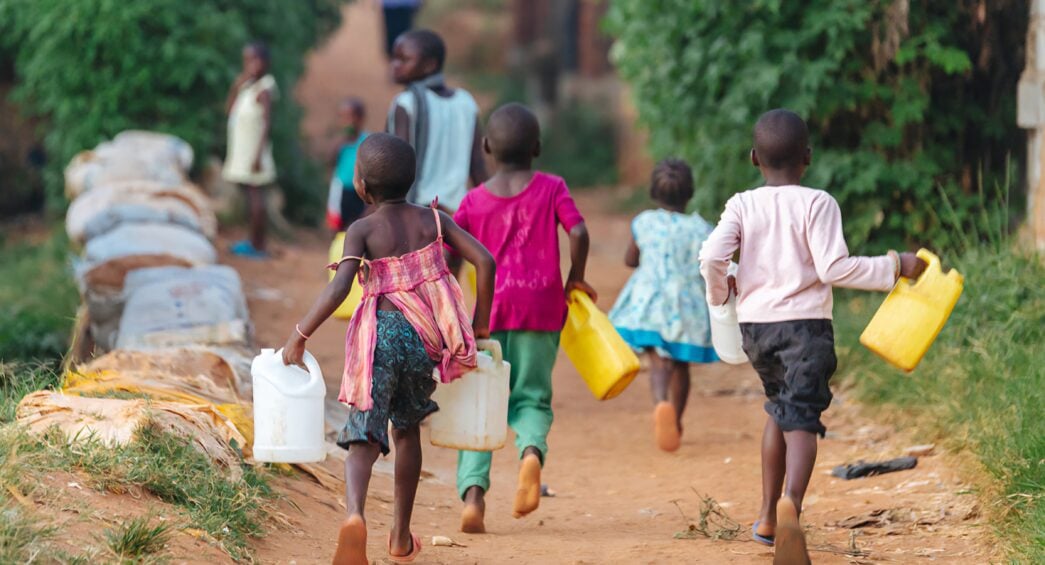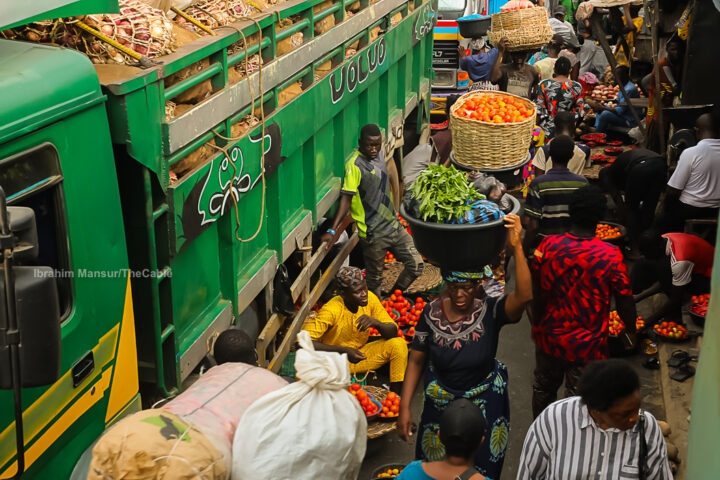The International Monetary Fund (IMF) says children born in sub-Saharan Africa’s resource-intensive countries (RICs) are expected to live four years less on average and are 25 percent more likely to live in poverty.
Nigeria is a resource-intensive country with a wide variety of natural resources including oil and gas.
The IMF’s latest report, ‘Growth in Sub-Saharan Africa is Diverging’, said growth in RICs, especially in fuel-exporting economies such as Angola, Chad, and Nigeria, has slowed sharply over the past 10 years.
The Washington-based institution said countries like Ethiopia, Rwanda, and Senegal (the non-RICs) are experiencing rapid growth.
Advertisement
The disconnect, the fund said, reflects a two-track growth pattern where a significant part of the region underperforms.
“Indeed, incomes in RICs have essentially stagnated. This marks a sharp contrast with the decade leading up to 2014, when RICs experienced rapid growth, in line with the region’s strong overall performance,” the IMF said.
“The post–2014 divergence between RICs and non-RICs has been driven largely by the combination of two factors.”
Advertisement
The organisation said the factors are the fact that the RICs and especially fuel exporters experienced a dramatic decline in their commodity export prices around 2014 and 2015 as the commodity “super-cycle”— a period of sharply rising commodity prices— ended.
IMF said the terms-of-trade decline has only been partially reversed since then.
Also, the impact of the terms-of-trade shock on RICs, is said to have been exacerbated by pre-existing structural vulnerabilities, including a poor business environment, limited human capital, weak governance, and poor management of resource revenues.
‘WEAK GOVERNANCE, CORRUPTION, POOR RESOURCES MANAGEMENT AFFECTED RICS PRODUCTIVITY’
Advertisement
In the report, the IMF said weak governance, systemic corruption, and an unfavourable business climate take a toll on productivity and output, adding that the effects are most striking when commodity prices fall.
“Such weaknesses affect both the resource sector itself and prospects for the economy diversifying into other sectors,” it added.
“For instance, the potential for theft of oil production undermines productive efficiency and diverts precious resources from more productive uses.
“Or weak governance can be a central impediment for private sector investment more broadly. Fuel exporters outside the region, with generally stronger governance, have weathered the commodity price slump far better.”
Advertisement
In addition, the report said poor resource management reinforced the original shock through a pro-cyclical fiscal bias.
The IMF said fiscal policy in RICs, including in sub-Saharan Africa, is generally far more correlated with economic shocks, intensifying their effects, compared to other countries.
Advertisement
“For instance, when commodity prices are high, many RICs, particularly fuel exporters, have embarked on costly capital projects that are often poorly planned and implemented, with corresponding sharp reductions in capital spending when commodity prices fall,” the report said
“In addition, many fuel exporters also provide sizable fuel subsidies, the cost of which increases as oil prices rise, limiting their ability to save during booms, while crowding out growth-friendly development spending.”
Advertisement
According to IMF, the average oil-exporting country in sub-Saharan Africa has since 2011 consistently spent all its oil revenues in the year when they accrued.
Recommending possible solutions, the IMF said reversing the growth divergence is a regional priority, as RICs make up about two-thirds of sub-Saharan Africa’s GDP and population.
Advertisement
“Reigniting durable growth will require a stable macroeconomic environment,” the organisation said.
“More prudent and consistently implemented fiscal frameworks can help address poor resource management challenges—and also help ensure growth is more resilient going forward.
“Further, broad-based reforms to address structural weaknesses—strengthening governance, enhancing the business environment, accumulating human capital, and addressing infrastructure bottlenecks—can help countries diversify and grow.
“And for fuel exporters, facing the global green-energy transition, the need to diversify is ever more urgent.”
The organisation also said there is a need for humanitarian priority.
“The report added that poor growth performance has translated into poor development outcomes—progress in tackling poverty in RICs effectively halted in 2014.
Add a comment










